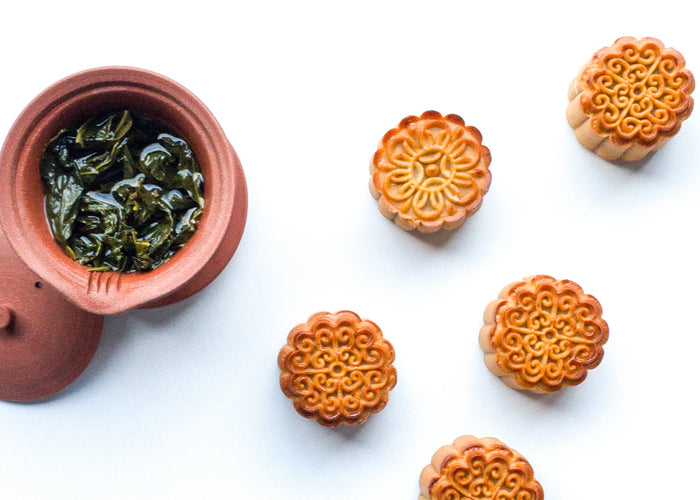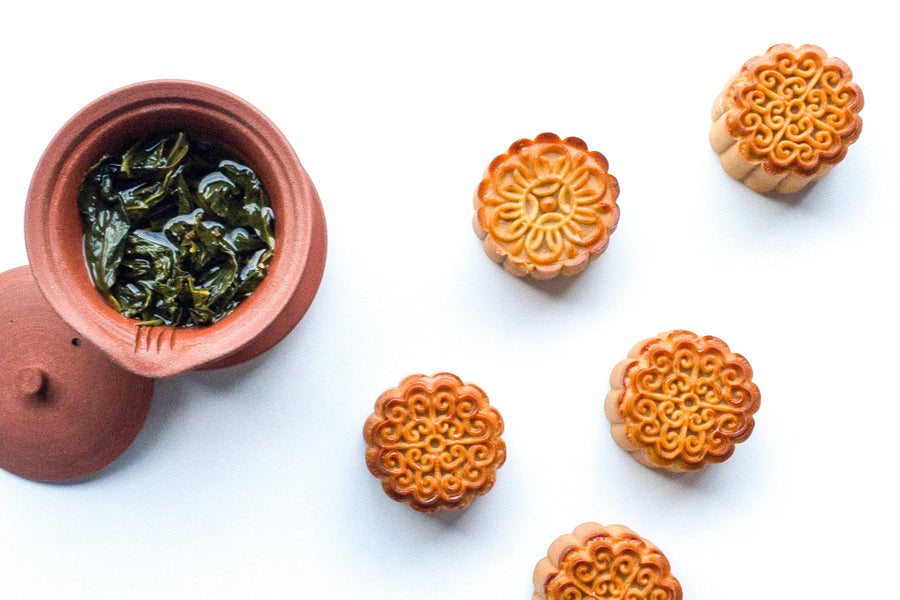Anji Baicha 2023 No.346
a special cultivar with light yellow buds and leaves
the name literally translates as Anji White tea 安吉白茶
Varietal:
Bai Ye Yi Hao 白叶一号 White leaf No.1
Region:
Anji, Zhejiang province, China
- Unit price
- /per
a special cultivar with light yellow buds and leaves
the name literally translates as Anji White tea 安吉白茶
Varietal:
Bai Ye Yi Hao 白叶一号 White leaf No.1
Region:
Anji, Zhejiang province, China
Adding product to your cart
This rare varietal 白茶一号 is called white tea, because the very first flushes of the tea, the tender buds are quite white. Later on, the leaves develop a darker green-yellowish color. Due to the early harvest, the tea is very high in L-theanine, which is responsible for the calming, uplifting ethereal effect. Anji Bai Cha is said to contain 3 to 4 times more amino acids than green tea. It also contains less polyphenol, so the taste is less bitter and astringent compared to other teas.
The story:In the Song Dynasty period, emperor Hui Zhong wrote a book on tea, called Treatise on Tea 大觀茶論. He was a great tea master and admired the tea ceremony. He claimed in his book that one of his very favorite tea was Anji Baicha.
When reviving the Anji tea tradition at the end of the 1990s, researchers have found a few original Baicha tea trees around 300 years of age. These were the starting point of the new plantations, they made cuttings from these old trees. Our grower proudly claims that his tea bushes originate from the first cuttings of the trees, as later only cuttings from the new bushes were allowed.
“Today I will tell you the story of Anji white tea. As early as around 2000, Anji was still in poverty. At that time, some foresighted villagers pruned the first generation of Anji white tea on the mother tree of Anji white tea and started to grow it to make tea. At that time, it was very difficult to do. There was no money, and the Anji white tea market was not so good. But the people who persevered won. My uncle is one of them. Since 2008, he has often won prizes at the local tea competition. This is half of the credit, also because the tea trees in his tea garden are the first generation of cuttings of the mother tree! Later, after the Anji white tea was gradually accepted by the market, the later-conscious people started cutting. Many of the Anji white tea you buy on the market may be the fifth and sixth generation cuttings. . . That tea is made to bring a baby’s taste, you can imagine. So you are lucky to meet me. We have to get Anji white tea as the first generation of cuttings in the mother tree, 18 years old!” An introduction from our tea grower.
Tasting notes:Steamed gaiwan: pistachio, biscuit
Flavours, effects: sugar peas, water chestnut, sweet kohlrabi, green asparagus. Very long aftertaste. Finally, we just had this nice, ethereal feeling and said “Aaaah”.
Preparing Instructions:Quantity: 6-7 grams per 180ml
Water temperature: 75-80ºC. From fresh, cold spring water or filtered water
Brewing time: 15-20…seconds
Infusions: 5-6
Steamed gaiwan: pistachio, biscuit
Flavours, effects: sugar peas, water chestnut, sweet kohlrabi, green asparagus. Very long aftertaste. Finally, we just had this nice, ethereal feeling and said “Aaaah”.
Quantity: 6-7 grams per 180ml
Water temperature:75-80ºC. From fresh, cold spring water or filtered water
Brewing time: 15-20…seconds
Infusions: 5-6
This rare varietal 白茶一号 is called white tea, because the very first flushes of the tea, the tender buds are quite white. Later on, the leaves develop a darker green-yellowish color. Due to the early harvest, the tea is very high in L-theanine, which is responsible for the calming, uplifting ethereal effect. Anji Bai Cha is said to contain 3 to 4 times more amino acids than green tea. It also contains less polyphenol, so the taste is less bitter and astringent compared to other teas.
The story:In the Song Dynasty period, emperor Hui Zhong wrote a book on tea, called Treatise on Tea 大觀茶論. He was a great tea master and admired the tea ceremony. He claimed in his book that one of his very favorite tea was Anji Baicha.
When reviving the Anji tea tradition at the end of the 1990s, researchers have found a few original Baicha tea trees around 300 years of age. These were the starting point of the new plantations, they made cuttings from these old trees. Our grower proudly claims that his tea bushes originate from the first cuttings of the trees, as later only cuttings from the new bushes were allowed.
“Today I will tell you the story of Anji white tea. As early as around 2000, Anji was still in poverty. At that time, some foresighted villagers pruned the first generation of Anji white tea on the mother tree of Anji white tea and started to grow it to make tea. At that time, it was very difficult to do. There was no money, and the Anji white tea market was not so good. But the people who persevered won. My uncle is one of them. Since 2008, he has often won prizes at the local tea competition. This is half of the credit, also because the tea trees in his tea garden are the first generation of cuttings of the mother tree! Later, after the Anji white tea was gradually accepted by the market, the later-conscious people started cutting. Many of the Anji white tea you buy on the market may be the fifth and sixth generation cuttings. . . That tea is made to bring a baby’s taste, you can imagine. So you are lucky to meet me. We have to get Anji white tea as the first generation of cuttings in the mother tree, 18 years old!” An introduction from our tea grower.
Tasting notes:Steamed gaiwan: pistachio, biscuit
Flavours, effects: sugar peas, water chestnut, sweet kohlrabi, green asparagus. Very long aftertaste. Finally, we just had this nice, ethereal feeling and said “Aaaah”.
Preparing Instructions:Quantity: 6-7 grams per 180ml
Water temperature: 75-80ºC. From fresh, cold spring water or filtered water
Brewing time: 15-20…seconds
Infusions: 5-6
Steamed gaiwan: pistachio, biscuit
Flavours, effects: sugar peas, water chestnut, sweet kohlrabi, green asparagus. Very long aftertaste. Finally, we just had this nice, ethereal feeling and said “Aaaah”.
Quantity: 6-7 grams per 180ml
Water temperature:75-80ºC. From fresh, cold spring water or filtered water
Brewing time: 15-20…seconds
Infusions: 5-6
More teas
Puer tea
Da Xue Shan Yesheng – Snow Mountain wild tree 2024 No.876
Regular price €10,80 20% off
- Unit price
- /per
8 gram
Da Xue Shan White Mini Bing 2024 No.217
Regular price €3,80 20% off
- Unit price
- /per
7 gramm bing














